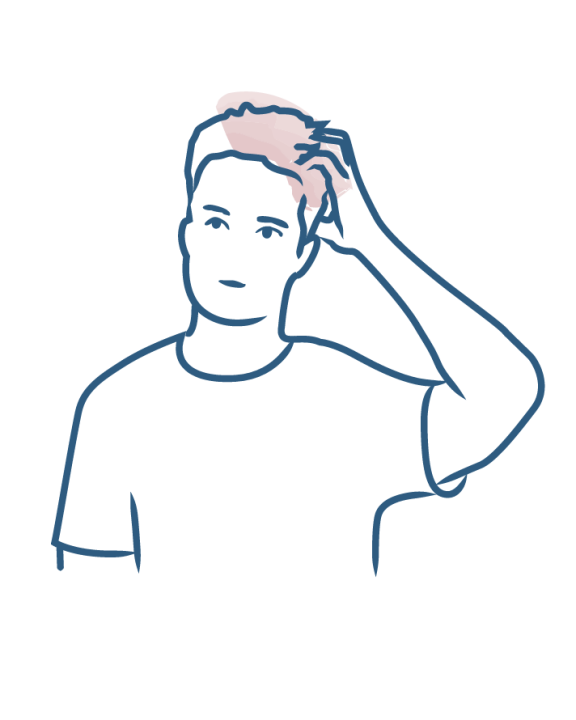How do you soothe itching?
Relieve nighttime itching

Relieve nighttime itching
As the name implies, nighttime itching occurs at night, while the person is sleeping... or trying to sleep! Nocturnal pruritus disturbs sleep, causing both difficulties in falling asleep and waking up during the night. The result is poorer sleep quality and many consequences during the day: fatigue, difficulty concentrating, irritability, etc. Knowing where nighttime itching comes from can help you better manage it and get back to restful sleep. Let's look into it!
What causes nighttime itching?
Having itchy skin in the evening and at night is a sign of many conditions, both dermatological and non-dermatological. Here are some examples of diseases that cause nighttime itching:
- Chronic inflammatory skin diseases such as eczema or psoriasis.
- Skin infections such as fungi or scabies. In cases of scabies, itching is more intense in the evening and at night simply because females lay their eggs, digging grooves in the skin mostly at night. Conversely, in cases of bedbug infestations, the itching is more intense from the morning on due to the night's bites.
- Non-dermatological diseases such as cholestasis. This is a liver condition in which bile no longer flows properly. Nighttime itching is one of the main clinical signs of cholestasis, along with other symptoms such as jaundice, dark urine and/or discolored stools.
- Some cancers can also be accompanied by nighttime itching. This is the case for certain blood cancers such as lymphoma. Itching in the evening and at night is sometimes associated with night sweats but also fatigue and a poor state of health. Seek medical attention.
External factors such as heat, friction with the bedsheets or allergies to certain bedding components could explain the aggravation of some forms of itching at night.
Nighttime itching affects sleep, daytime behavior and the skin. In fact, itching in bed often results in more severe scratching lesions because the person scratches harder without even realizing it. It is therefore important to find solutions to relieve itching at night.
In cases of nighttime itching, it is important to consult a doctor to determine the cause of the itching. It could be an infection by itch mites, and in this case an anti-parasitic treatment must be quickly set up to avoid the propagation of an epidemic. As cancer is also a rare but possible cause of nighttime itching, early diagnosis allows for proper management and a better prognosis. Once the cause of the itching is identified, follow your medical prescription.
At the same time, relieving nighttime itching involves implementing new habits that are beneficial to the skin. Here are some simple tips to help reduce itching and get a better night's sleep:
- Take a shower before going to bed. Opt for a warm and quick shower and use a specific cleansing product to reduce nighttime itching: a superfatted soap, a syndet or a soothing cleansing oil. Rinse well, dry by gently dabbing the skin with a soft cotton towel, then apply an anti-itching cream generously.
- Choose bedding adapted to sensitive skin prone to nighttime itching: opt for natural, soft and comfortable materials such as cotton, linen or silk. These materials have the advantage of letting the skin breathe. The same goes for underwear and pajamas: limit synthetic materials as much as possible to avoid nighttime itching. Take care of your clothes by washing them very regularly, with a small amount of hypoallergenic and fragrance-free detergent.
- Avoid overheating the room, as this encourages sweating and therefore nighttime itching. Air that is too dry can also dry out the skin and increase the risk of itching. A humidifier may be needed in the room.
- Place a glass of water and tools to combat nighttime itching on the nightstand: a thermal spring water spray, an anti-itching cream and a leave-in lotion for itchy scalp.
More information
- Discover Essential oils for pruritus
How do you soothe itching?
Essential oils for pruritus
- Discover Medicinal treatments for itching
How do you soothe itching?
Medicinal treatments for itching
- Discover Which anti-itching shampoo should I use?
How do you soothe itching?
Which anti-itching shampoo should I use?
Our care routines
Itching on the scalp
Dermatological expertise
To better understand your skin and hair, discover our exclusive content and innovative care products designed to improve your quality of life..

